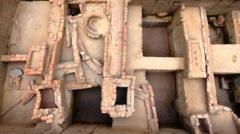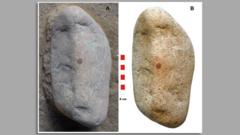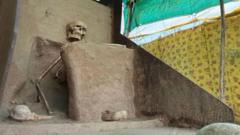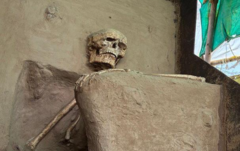The site was initially excavated in 2013 and has since unveiled over 15,000 artefacts. According to experts, these finds substantiate claims of a literate, urbanized society at that time. The historical importance of Keeladi is profound, contesting the long-held narrative that ancient civilization predominantly thrived in northern and central India. Notably, the recent emphasis on the Tamil Brahmi script found at Keeladi might suggest that southern cultures had significant advancements earlier than previously recognized.
This narrative, however, has sparked debate both in academic circles and political arenas, heightening the age-old north-south divide in India. Supporters argue that the findings uplift regional pride and reshape the historical account of civilization's evolution on the subcontinent. On the contrary, skeptics call for more nuanced research to authenticate claims regarding the Tamil Brahmi script’s precedence over its North Indian counterpart.
Additionally, the political ramifications of these discoveries have prompted conflict regarding the control of archaeological narratives. The transfer of the leading archaeologist, Amarnath Ramakrishnan, has been interpreted by local authorities as an attempt by the federal government to dismiss Tamilian contributions to history, intensifying sentiments surrounding the preservation of cultural heritage.
In essence, the Keeladi excavations serve as a bridge between the past and present, providing insight into ancient connections and fostering ongoing discussions about identity and pride in historical narratives across India.
This narrative, however, has sparked debate both in academic circles and political arenas, heightening the age-old north-south divide in India. Supporters argue that the findings uplift regional pride and reshape the historical account of civilization's evolution on the subcontinent. On the contrary, skeptics call for more nuanced research to authenticate claims regarding the Tamil Brahmi script’s precedence over its North Indian counterpart.
Additionally, the political ramifications of these discoveries have prompted conflict regarding the control of archaeological narratives. The transfer of the leading archaeologist, Amarnath Ramakrishnan, has been interpreted by local authorities as an attempt by the federal government to dismiss Tamilian contributions to history, intensifying sentiments surrounding the preservation of cultural heritage.
In essence, the Keeladi excavations serve as a bridge between the past and present, providing insight into ancient connections and fostering ongoing discussions about identity and pride in historical narratives across India.






















